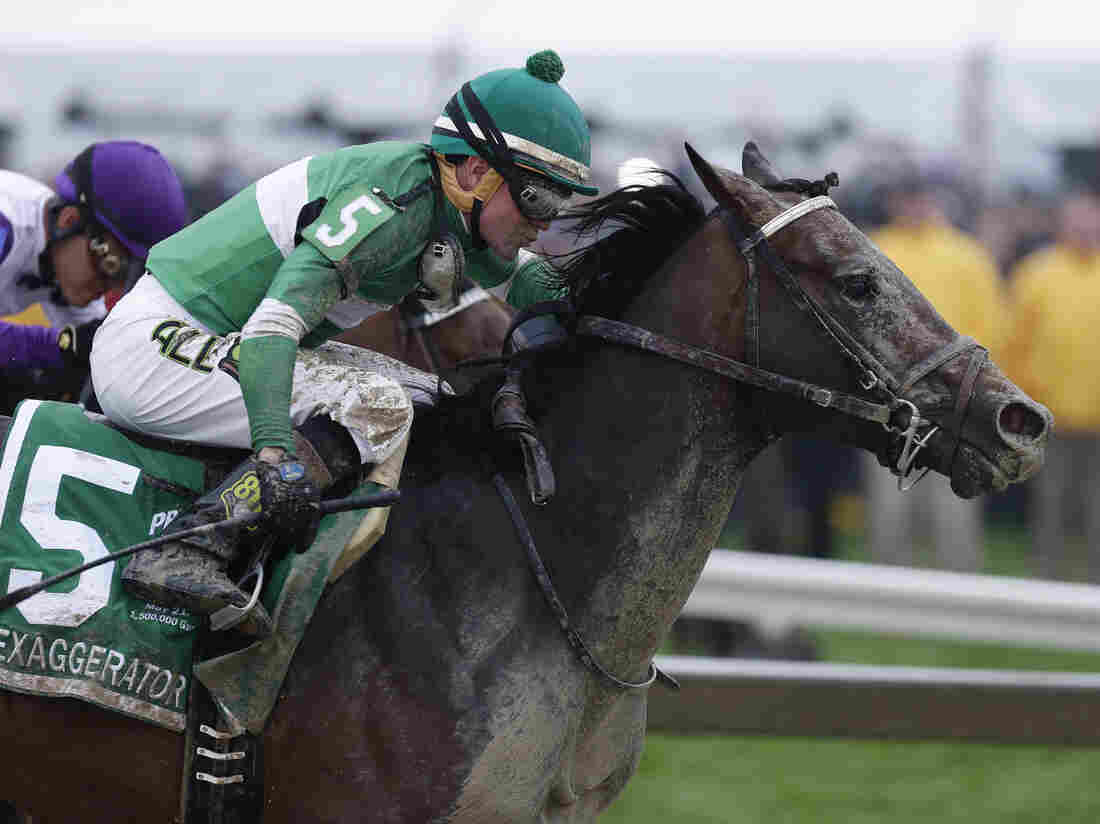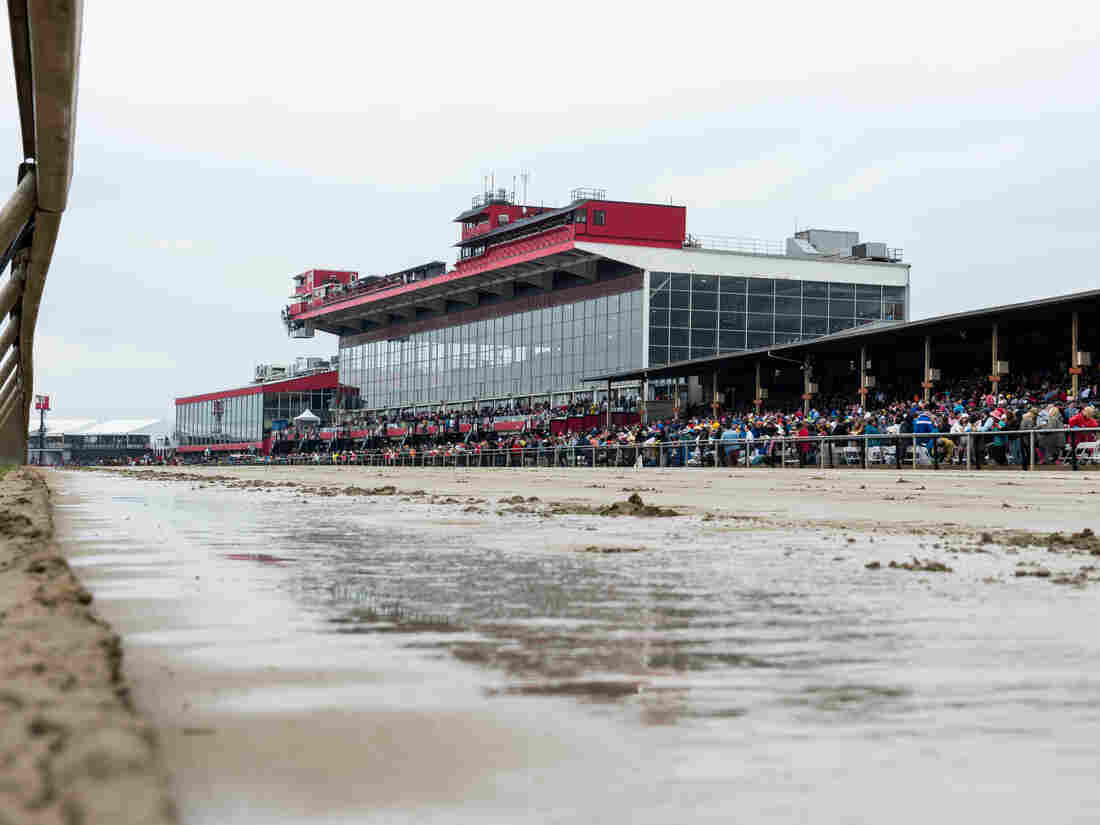Baylor Demotes President, Fires Football Coach Amid Sexual Assault Scandal
Baylor University demoted its president and fired the head football coach for their handling of allegations of sexual assault by members of the school’s football team. NPR’s Audie Cornish talks to Paula Lavigne of ESPN’s Outside the Lines, who reported on the cases and how Baylor officials failed to investigate the allegations and violated Title IX federal law.
Transcript
AUDIE CORNISH, HOST:
Administrators at Baylor University didn’t do anything to protect students when they learned of a potential pattern of sexual violence by multiple football players. Coaches and school leaders sometimes treated alleged victims with hostility. Those are just two of the scathing conclusions and an independent review of how Baylor University handles sexual assault cases. Baylor’s football Coach Art Briles was fired this week and university President Kenneth Starr was demoted – and yes, it’s that Ken Starr, the former prosecutor who investigated the Bill Clinton-Monica Lewinsky scandal. Paula Lavigne is an investigative reporter with ESPN’s “Outside The Lines.” They’ve done some of the most extensive reporting on allegations against Baylor players.
Welcome to the program.
PAULA LAVIGNE: Thank you.
CORNISH: Ken Starr will still teach law and serve as chancellor at Baylor. And, of course, he actually helped commission the “Outside” review which led to his removal as president. What does the review say he did exactly?
LAVIGNE: The review doesn’t actually name anyone in particular, but it outlines quite a pattern of inaction from the very root of who these women were reporting to all the way up. And it was saying that there wasn’t a system set up, people didn’t know where to report, cases fell through the cracks. And at Baylor, Ken Starr is the ultimate decision-maker in these cases. That’s what their policy says and, you know, at the end of the day, he’s the one who needs to be accountable.
CORNISH: Now, the most critical portions of the review focus on the football leadership. Coach Art Briles helped turn the team around athletically, helped bring in millions of dollars in revenue, but how did the report describe his role in these allegations?
LAVIGNE: Well, the overall report, as I just mentioned, talks about just sort of this pattern of inaction, this pattern of not having appropriate reporting and response set up. But what sets the football department apart is that it describes deliberate actions by football officials of trying to circumvent the process – talking about dissuading complaints from going up to the proper channels from getting student athletes transferred out of the school when something came up instead of keeping them around and dealing with it and addressing the problem. And I think that’s what stood out is that, you know, there was inaction everywhere, but within the football department, there was a real deliberate attempt to try to sweep these things under the rug.
CORNISH: After all the reporting you’ve done, was there anything in this independent review from this Philadelphia law firm that surprised you?
LAVIGNE: What surprised me was how bad it really was. I mean, we knew from talking to the victims and even talking to the student athletes themselves and parents and others that this was happening, that people were coming and asking for help or they were hoping to get justice and they weren’t getting either. What we didn’t realize was how bad and how deliberate it really was.
CORNISH: Is there anything in the report that could allow for criminal prosecutions that would help make those cases?
LAVIGNE: Well, I think that’s going to be kind of an interesting next question is whether or not any of these women will be able to take this and try to use it, you know, not only to try to pursue criminal charges, but also there is a pending civil case right now involving one of the women. And, you know, the violations outlined in this report I would think would certainly advance her cause. You know, they’re going to run into some other, you know, logistical issues in terms of statute of limitations and so forth, but that’s definitely on the table.
CORNISH: To your mind, how does what’s been uncovered at Baylor fit into this larger conversation about sexual assault on campus, about athletic programs that operate as if they’re above the rules?
LAVIGNE: Well, we’re focusing on Baylor today, right, but this is a problem at so many college campuses across the country. I mean, what sort sets Baylor apart is the fact that we have so many cases. I mean, it’s – I think we had five individuals, and that doesn’t even count the domestic violence and the other cases that we’re aware of that, you know, haven’t come forward. But I think that this needs to send a message to those schools that they need to do a better job with this. I mean, I would’ve thought that by now they would’ve already gotten the word that, you know, you can’t sweep these things under the rug. Well, if this case doesn’t do that, if the firing of a coach and the demotion of a president doesn’t send enough – a big enough signal then I don’t know what will.
CORNISH: Paula Lavigne. She’s an investigative reporter with ESPN’s “Outside The Lines.”
Thank you so much for speaking with us.
LAVIGNE: You’re welcome.
Copyright © 2016 NPR. All rights reserved. Visit our website terms of use and permissions pages at www.npr.org for further information.
NPR transcripts are created on a rush deadline by Verb8tm, Inc., an NPR contractor, and produced using a proprietary transcription process developed with NPR. This text may not be in its final form and may be updated or revised in the future. Accuracy and availability may vary. The authoritative record of NPR’s programming is the audio record.






